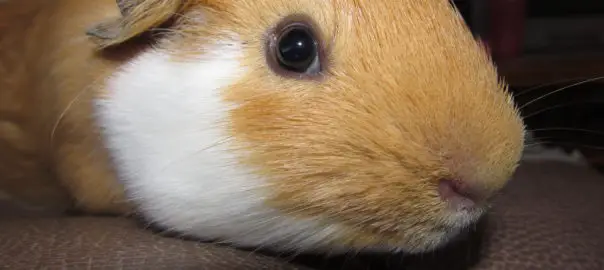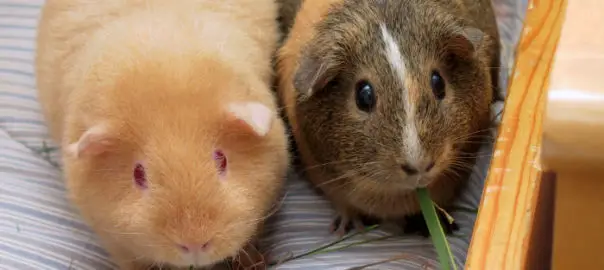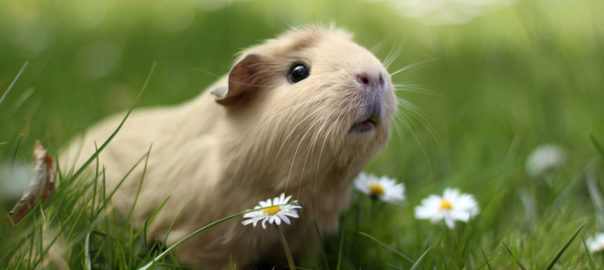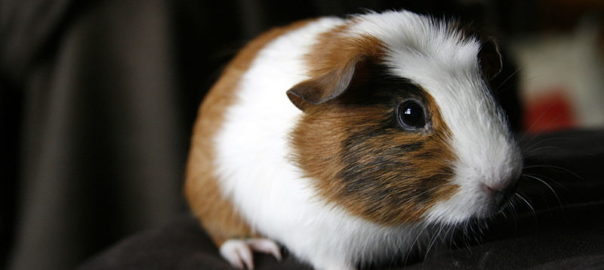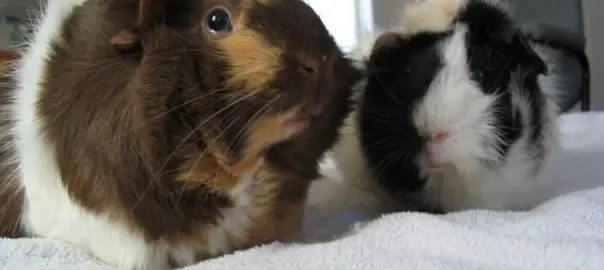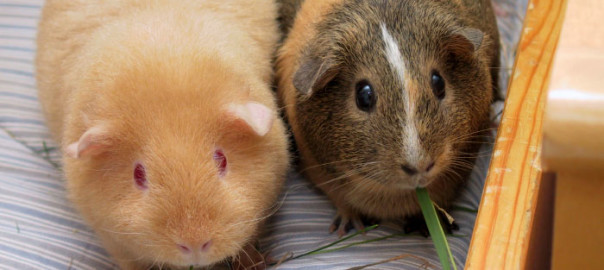The lifespan of a Guinea Pig is not as constant as you may think. Most say that a Guinea Pig can live for about five years on average in captivity. However, this number can increase or decrease and is something that is dependent on a number of factors.
They do not tend to live as long as other domestic pets such as dogs. There are certainly other pets that live longer and enjoy a longer life in years than Guinea pig.
Indeed the top five longest living pets on average are;
Tortoise: 120 years
Parrot: 25 years
Horses: 25 years
Cat: 12 years
Dogs: 12 years
So guinea pig’s do lag behind in terms of the number of years that they can live for.
However, compared to other types of rodent species they do have a good lifespan.
They live longer than some than other types of domestic rodents such as mice, rats, hamsters and gerbils. But not as long as others such as Degu and Chinchillas.
Mice: 1-2 years
Rats 1-2 years
Hamsters: 2-4 years
Degu: 6-8 years
Gerbils: 2-4 years
Chinchillas: 15-20 years
However, these are nothing compared to the longest living rodent which is the Naked Mole Rat which can live for up to 31 years.
How long do Guinea Pigs live for?
Guinea Pig live span is on average five years but they tend to live between 4-8 years. Some however, have been known to live for longer.
The oldest guinea pig on record lived up to 15 years old. You can read more about Sweeties here
An average age for a female breeding guinea pig is 3.5 years.
Does guinea pig lifespan vary depending on variety of guinea pig?
It depends on how vulnerable they are. The more vulnerable the guinea pig, the increased chance it has to die because it is not looked after well.
Hairless guinea pigs are most at risk. This is because they are extremily vulnerable to temperature changes because of they do not have the fur to protect them from cold temperatures. They need to be kept in specific conditions which are well suited to them. They are also vulnerable to injuries and infections because of their lack of fur. Their exposed skin means they don’t have the protection for their skin.
There are two types of hairless guinea pigs, the Skinny guinea pig and the Baldwin guinea pig.
Long haired cavies can be at risk if they are not treated well. You may not think they are vulnerable and are more hardy than most varieties of guinea pig, however their long hair can cause them problems if it is not maintained well. It is common for them to get fecies and other wanted particles stuck in their hair and if they aren’t brushed and washed on a regular basis, they can become ill. Long haired cavies include, the Abyssinian guinea pig, the Coronet guinea pig, Silkie guinea pig, and the Peruvian guinea pig.
Short haired cavies are the most hardy of the all varieties. Of all the varieties of guinea pig, these cavies are able to withstand most temperatures apart from extreme hot or freezing conditions. They don’t require as much care as long haired or hairless varieties and can live either inside or outside as long as temperatures are right.
What happens to a guinea pig in old age?
As with all animals, guinea pigs die of old age. There are some noticeable signs that a guinea pig is getting old;
- They will slow down in their movements. You may notice that their toes thicken and twist outwardly as they get older which will make it more painful for them to walk around.
- They wont be as playful as they once would have been
- Their fur begins to grey, particularly around their facial features.
- They may sleep much more.
They may need extra care and more help during this time so do watch them carefully
This the natural way for a guinea pig to pass away but there are things that can shorten their natural life span and prevent the guinea pig from living its natural life.
What will lessen a Guinea Pig’s life span?
Diseases and disorders.
There are many different diseases and disorders which a guinea pig can get. For this section I am grateful for The Merck Manual which lists in detail the diseases and disorders of Guinea pigs.
- Diarrhea
- Dental disease
- Eye and ear disorders such as conjunctivitis
- Nutritional disorders such as vitamin C deficiency and appetite loss.
- Metabolic disorders such as hardening of the organs, calcium deficiency and pregnancy toxemia.
- Lung and Airway disorders such as Pneumonia, Bordetella bronchisepta Infection, Streptococcosis, and Adenovirus Infection.
- Reproductive disorders such as Ovarian cysts, Mastitis, Bordetellabacteria, Bordetellabacteria, and Dystocia
- Skin disorders such as fur Mites, Lice, Ringworm, Barbering, and Pododermatitis (Bumblefoot)
- Disorders affecting multiple body systems such as Enlarged Lymph Nodes (“Lumps” or Lymphadenitis)
- Cancers and tumors such as trichoepitheliomas and Lymphosarcoma
Ill treatment
Unfortunately, the world is littered with stories of guinea pigs being ill treated. The bottom-line is that if they are not treated well, they stand a good chance of living longer. When they are not fed and watered well, kept in good conditions, and any afflictions are not given appropriate veterinary care, they will suffer.
Another common way of not treating a guinea pig well is to keep it on its own. When they are on their own they will suffer from loneliness and the sadness that they feel when alone can potentially be enough to kill them eventually.
Damp
Damp and moist environments are dangerous to guinea pigs. They can cause a number of issues for them such as an upper respiratory infection and ring worm. Symptoms of upper respiratory infection are watery eyes, nasal discharge, wheezing, coughing and sneezing.
This is why its not a good idea to leave a guinea pig out on grass or in rainy conditions.
Extreme temperatures
The best temperatures for a guinea pig to live in is between 10 – 30 degrees celcius. If temperatures fall below or above that window of temperature then it wont do them any good. They are hardy creatures who can withstand cold and hot conditions, but they wont benefit from it.
Malnutrition
Not feeding a guinea pig well can obviously not be of benefit to them. Choosing the wrong foods, irregular feeding, foods that dont have good levels of vitamin c can all do them harm.
How can I help my guinea pig live longer?
In order to help a guinea pig live a bit longer, preventing health issues is essential. This is not an exhaustive list. In essence, this site is all about how to keep a guinea pig living longer so do read other articles on the site, but here is a list of essential activities.
- Its important that they have access to clean water
- That their bedding materials are good quality and don’t irritate them.
- That they have a consistent diet that does not change sporadically.
- That they live in an environment, of stable temperature, that is cleaned on a regular basis.
- They have a good area to exercise.
- That they have good company
- Help it to enjoy its life
- Good veterinary care
